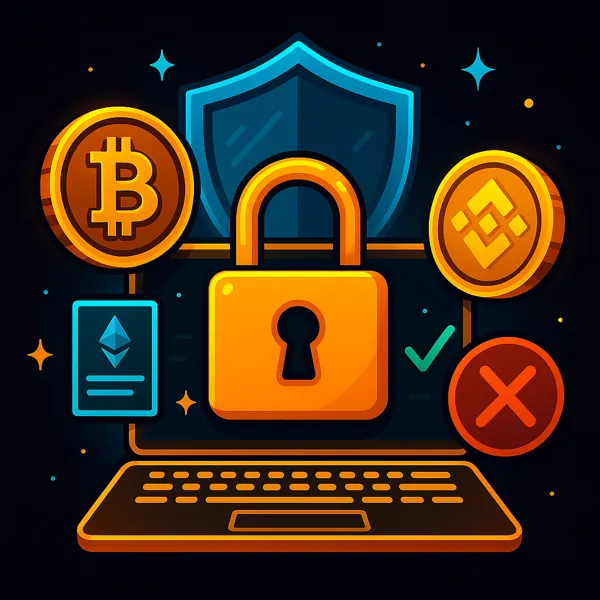Most beginners buy their first crypto on a big platform like Binance, Coinbase, or Kraken. And many just leave it there. Easy, right? But here’s the big question: is your crypto actually safe on an exchange?
Short answer: safer than keeping cash under your mattress… but not as safe as holding your own keys. Let’s break it down.
Why People Leave Funds on Exchanges
- It’s easy. Log in with email + password.
- You don’t have to manage seed phrases.
- Instant access to buy, sell, or trade.
- Fiat ramps (credit card, bank, PayPal).
- Customer support if you mess up.
For beginners, exchanges feel like “crypto banks.” But the trade-off is trust.
The Risks of Keeping Funds on Exchanges
- Not Your Keys, Not Your Coins
- You don’t control private keys. If the exchange freezes or collapses, funds = gone.
- Hacks
- Mt. Gox (2014) → 850,000 BTC lost.
- Bitfinex (2016) → 120,000 BTC hacked.
- Even Binance faced hacks (though they refunded users).
- Collapses
- FTX (2022) → $8B+ vanished overnight. Millions lost.
- QuadrigaCX (2019) → Founder “died,” funds inaccessible.
- Regulation & Freezes
- Exchanges can freeze withdrawals for “compliance.”
- Some countries block access entirely.
- Withdrawal Delays & Limits
- Even trusted CEXs require multiple confirmations, delays, and ID checks.
The Pros of Using Exchanges
It’s not all bad. Exchanges are still the easiest way to start.
- Liquidity: CEXs like Binance move $20B+ daily. You can buy/sell without slippage.
- Security (kind of): Big ones like Coinbase insure some funds, keep most assets in cold storage.
- Onboarding: You can go from zero to holding BTC in minutes.
- Advanced tools: Futures, staking, margin trading.
For small amounts or trading, CEXs are convenient.
Safer Alternatives
If you want long-term safety, move funds to:
- Hot wallet (MetaMask, Trust Wallet) for degen plays.
- Cold wallet (Ledger, Trezor) for serious holdings.
- Hybrid: Keep trading stack on exchange, savings in self-custody.
Real-World Stories
- FTX collapse: A whole generation learned the hard way. Trusting CEX = instant rekt.
- Coinbase reliability: Still one of the safest for beginners, but accounts do get frozen during spikes.
- Binance: King of liquidity, but under regulatory fire worldwide.
Final Word
Exchanges are the on-ramp, not the destination.
Safe for:
- Buying your first crypto.
- Short-term trading.
- Holding small amounts.
Not safe for:
- Life savings.
- Long-term HODL.
- Serious degen gambling bankrolls.
If you’re serious about Web3, you need your own wallet. Exchanges are fine to start, but in the end: true safety = self-custody.
Wagmi 🚀


